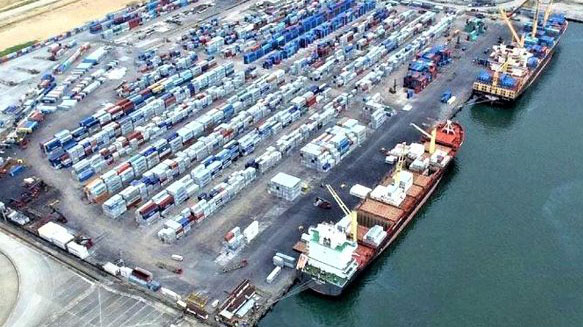
Last week, President Bola Tinubu assented to the electricity bill, which empowers states, companies and individuals to generate, transmit and distribute electricity, repealing the Electric Power Sector Reform Act (EPSRA) signed by President Olusegun Obasanjo in 2005.
The new Act consolidates all legislations dealing with the electricity supply industry to provide an omnibus and ideal institutional framework to guide the post-privatisation phase of the Nigerian Electricity Supply Industry (NESI) and encourage private sector investments in the sector. It also provides a framework for the improvement of access to electricity in rural, unserved, underserved, peri-urban and urban areas through the use of conventional sources and renewable energy off-grid and mini-grid solutions.
With the new law, states would be able to issue licenses to private investors, who have the ability to operate mini-grids and power plants. However, such state licenses are not to extend to inter-state or transnational distribution of electricity. Under the Nigeria Electricity Act, electricity generation licensees are obligated to meet renewable generation obligations as may be prescribed by NERC.
This move is an important one for manufacturers in the country. The umbrella association, Manufacturers Association of Nigeria (MAN), had in the past, bemoaned the dearth of electricity, which hampers production, high energy and alternative costs among other negative factors, which they said are forcing many of them out of business.
According to recent data from the association, MAN reported that expenditure on alternative energy sources increased to N76.7 billion in the second half of 2022 from N45.04 billion recorded in the corresponding half of 2021; thus, indicating a 70 per cent increase over the period. Inadequate electricity supply, it said, remains a huge challenge to manufacturers, accounting for their huge investment in self-energy generation, which stood at N76.7 billion in the second half of last year. Cost of self-energy generation increased from N45.04 billion in the corresponding half of 2021, indicating a 70 per cent increase over the period.
According to their ‘Bi-yearly Economic Review’ for the second half of 2022, energy costs increased by 13 per cent when compared with N67.8 billion recorded in the preceding half. The survey added that electricity supply to industries from the national grid declined marginally to 11 hours per day from 12 hours recorded in the preceding half. “Irrefutably, the trends show that power supply to the industry is still a huge challenge, which accounts for huge investment of manufacturers in self-energy generation.”
MAN’s Director-General, Segun Ajayi-Kadir, has in the past urged the development and implementation of off-grid solutions and independent power projects by the private sector as well as the development of energy mix and renewable energy since Nigeria has huge potential for solar and wind.
A source at MAN who pleaded anonymity, said they have been clamouring for the decentralisation of power, adding that some companies generate more than they need but couldn’t sell the excess energy.
“However, with this new Act, those that were in this category would now be able to sell excess energy to smaller companies that need it. I believe if well managed and left in the hands of capable private players, electricity deficiency would be a thing of the past. We have relied on the national grid for too long and suffered, hopefully, all that is now behind us,” he said.
Chief Executive Officer, Centre for the Promotion of Private Enterprise (CPPE) and past DG, Lagos Chamber of Commerce and Industry (LCCI), Dr. Muda Yusuf, welcomed the Act, saying it will impact positively on the country’s industrial development.
Yusuf stressed that one of the major challenges facing manufacturers is the high cost of energy and for many years, most of them have been dependent on diesel and gas, both of which are extremely expensive.
“Diesel price, especially with the onslaught of the Ukraine/Russian war is high, same as gas, which uses an international pricing benchmark. So, if we can have more investors in the power sector, which this new law provides for, it would be a good thing for manufacturers.
“This will lead to decentralisation of the electricity grid; more investors would come into power generation, transmission and distribution as well as provide off-grid solutions. State governments would also invest in electricity. As it is, Nigeria is too big to be dependent on just one centralised electricity grid and as we all know, each time there is a problem with the grid, which is often, the whole country is thrown into darkness.
“It is a welcome development and a major step in our electricity sector reform but it is important that we must get the right investors into the space, investors that have financial and technical capacity, we don’t need a proliferation of providers. Just enough providers in catchment areas like industrial estates, as economics of scale is very important. If the scale is small, energy costs will remain high. We need investors that can invest on a very large scale, and can support industries in different locations across the country.
“If industries can bring down their cost of energy, which currently accounts for over 30 per cent of their running costs, then we would see more impact on employment, industrial development and growth, and on the prices of goods produced. It will also spur competitiveness especially with the Africa Continental Free Trade Agreement, which will open up our manufacturers to more intense competition from other countries on the continent,” he said.
An Energy economist, Dr. Percy Chukwuka-David, praised the Act, adding that it is a welcome development to the Organised Private Sector (OPSN) whose businesses have been greatly affected by the inconsistency in power supply.
He said manufacturing companies, which have relied heavily on self-generation of power through diesel generators can come together as a cluster of industries in each state to apply for licences from the state government to build mini-grids and power plants, which will serve their industrial needs without interruptions in power supply.
“Some manufacturing companies can also individually apply to generate power where the financial capacity can be met. Private investors interested in power generation can also invest in building mini-grid and solely supply uninterrupted power to industries within the state.
“Going forward, manufacturing industries can have appropriate output projections and work towards achieving the goals without concerns regarding power outages. Costs can also be effectively and efficiently managed, while short, medium and long-term financial projections are possible. This is definitely a game-changer for the industrial and manufacturing sector.”
He added that Foreign Direct Investments (FDIs) would flow into the country, while many investors will begin to show interest in Nigeria going forward. “However, implementations and monitoring have remained the bane of government policies. Corrupt officials in the government agencies must be watched and supervised to ensure that the benefits of this new Act are achieved. Also, the need for the government to support industries with financial backing and incentives that will enhance easy take-off of this laudable policy is advocated and very necessary,” he said.
Stakeholders hopeful of electricity Act impact on manufacturing sector

[FILES] Electricity poles
[FILES] Electricity poles





